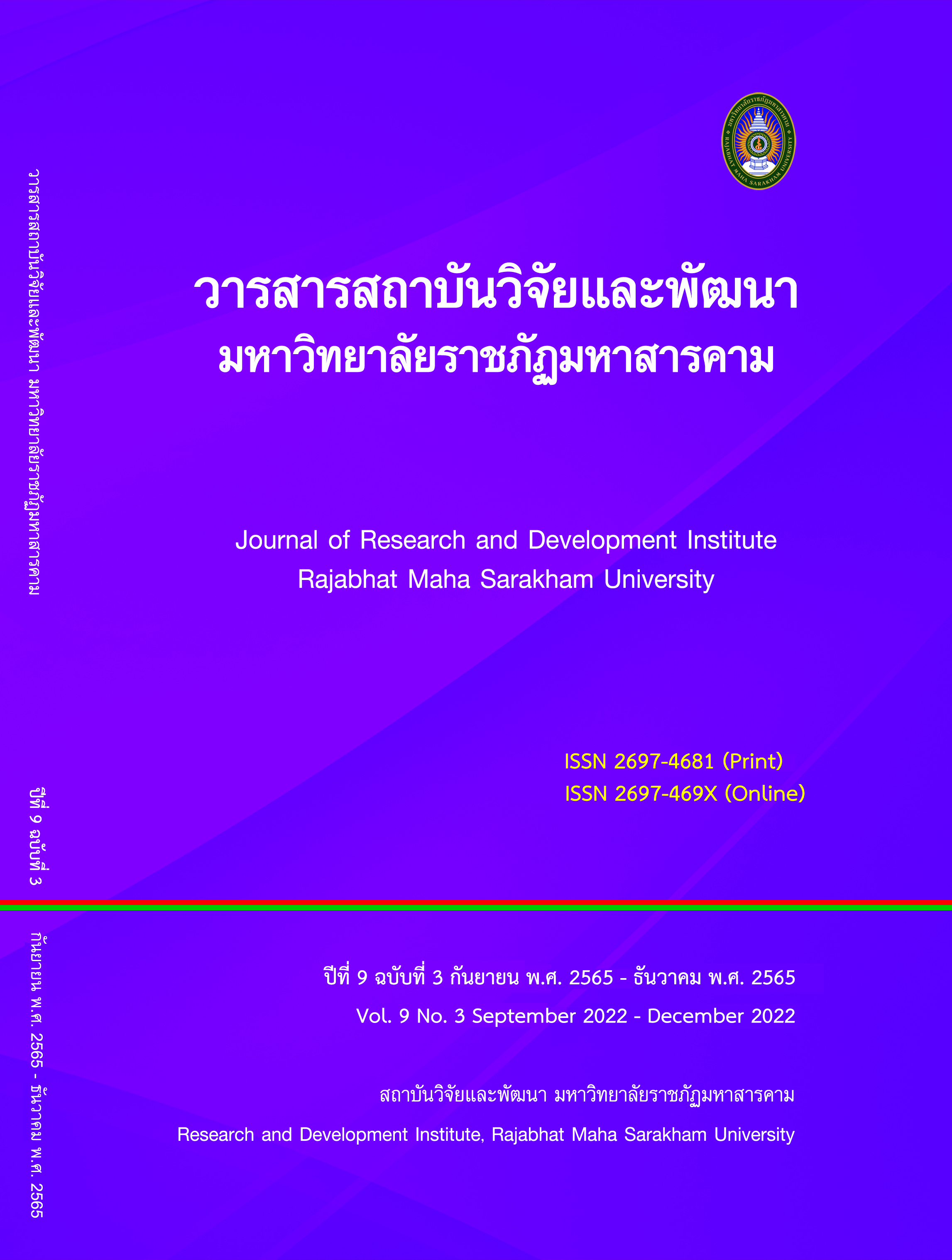Developing Indicators for the Competencies of Learning Evaluation for Science Teachers
Keywords:
21st Century Science Learning, Learning Evaluation, Competencies of Learning EvaluationAbstract
The purposes of the research were: 1) to develop indicators for the competencies of learning evaluation for science teachers, 2) to evaluate the validity of the model for assessing the competencies of learning evaluation for science teacher and The sample subjects of the study were seven hundred and sixty science teachers under the Office of the Basic Education Commission in 2017. Confirmatory factor analysis and multiple-group analysis were employed for the study.
The results of the research found that
- 1. The study showed that the indicators for the competencies for science teachers consisted of five factors with thirty eight indicators: 1.1) planning for learning evaluation, 1.2) creating and using measurement and evaluation tools, 1.3) strategies for measurement and Evaluation, 1.4) interpreting the scores and evaluating learning outcomes and 1.5) Reporting and Evaluation Results for Learning Management Development.
- 2. The findings indicated that the structural validity of the model regarding analyzing the latent variables was consistent with the empirical data.
References
Buros. (2019). Center for Testing. Standards for Teacher Competence in EducationalAssessment of Students. Retrieved fromhttps://buros.org/standards-teacher-competence-educational-assessment-students.
Faith, H. W. (2004). Action Research in the Secondary Science Classroom: Student Response to Differentiated. Alternative Assessment source. American Secondary Education, 32(3): 89-104.
Institute for the Promotion of Teaching Science and Technology. (2010). Science and Technology Teacher Standards. Bangkok: Institute for the Promotion of Teaching Science and Technology.
Kanchanawasi, S. (2011). Assessment theory. (8th ed). Bangkok: Chulalongkorn University.
Klainin, S. (2012). Thai Science Education: Development and Recession. Bangkok : Institute for the Promotion of Teaching Science and Technology.
Limphonsemanon, S. (2016). Guidelines for evaluating science achievement of Mathayomsuksa 2 students by integrating with teaching and learning. Journal of Education research Faculty of Education, Srinakharinwirot University, Vol. 10(1).
National Institute of Educational Testing Service (2015). Summary of basic national educational testing results. Secondary School Level 3, Academic Year 2019. [Online]. http://www.newonetresult.niets.or.th/AnnouncementWeb/PDF/SummaryONETM3_2562.pdf [1 September 2021]
Office of the Basic Education Commission. (2014). Guidelines for measuring and evaluating learning outcomes according to the Basic Education Core Curriculum, B.E. 2551 (4th ed). Bangkok: Assembly Printing House. Agricultural Cooperatives of Thailand.
Panich, V. (2012). Ways of creating learning for students in the 21st century. Bangkok: Tathata Publication Co., Ltd.
Poonphuttha, A. (2017). The Development of Learning Performance Measurement and Evaluation of Teacher Training Experience Students: A Case Study Maha Sarakham Rajabhat University. Mahasarakham: Mahasarakham University.
Pornphisutmat, S. (2014). Evaluation of learning helps promote learners to be effective. How to learn science in the 21st century?. RMUTSB Academic Journal. Vol. 2(1), 81-90
Sawathanaphaiboon, S. (2007). Research Report on Measurement and Evaluation Model of Science Teaching and Learning Based on Actual Conditions. Level 4. Bangkok: Science Education Center, Srinakharinwirot University.
Downloads
Published
How to Cite
Issue
Section
License
Copyright (c) 2022 Journal of Research and Development Institute Rajabhat Maha Sarakham University

This work is licensed under a Creative Commons Attribution-NonCommercial-NoDerivatives 4.0 International License.
Articles that are published are copyrighted by the authors of the articles







